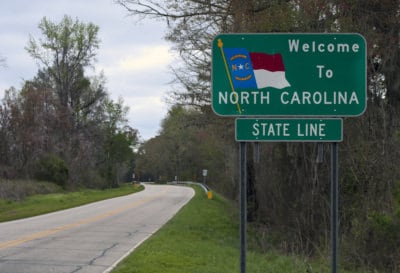
Much like the noisy emergence of 13-year and 17-year periodical cicadas, an outbreak of calls to suppress books, to ban speakers, and to sanitize teaching in public schools goes in cycles. In North Carolina as across the country, the 2022 election year arrives with a periodic outcry already in progress.
The American Library Association (ALA), in preparation for an annual Banned Books Week in the fall, tracks books that it categorizes as challenged. In 2020, ALA found 273 books targeted in 156 challenges to libraries, schools, and universities; in 2019, 566 books targeted in 377 challenges.
Chalkbeat, a national nonprofit news organization, reported last week that “officials nationwide have raced to enact new laws and introduce new policies meant to shape how students discuss the nation’s past — and its present.” It published two maps, one showing 36 states where efforts had been made to restrict teaching on racism and bias, the other showing 17 states that have expanded education on racial topics.
In her column for The Hechinger Report, editor-in-chief Liz Willen took note of “recent campaigns to ban books that mention homosexuality, race or gender, along with today’s disputes over how much control parents should have over what children are being taught in public schools across the country.” An experienced education journalist, Willen wrote, “Public schools are once again under attack, from mask mandates to the teaching of critical race theory, with battles breaking out everywhere about what teachers should teach, what books are acceptable and how much say parents and state legislatures should have.”
North Carolina has largely avoided the national attention that has fallen on Virginia, Texas, and Tennessee. That is so in part because of its Democratic governor’s check on the Republican-majority in the General Assembly.
The legislature approved legislation that would have prohibited teachers from instructions in which “any individual, solely by virtue of his or her race or sex, should feel discomfort, guilt, anguish, or any other form of psychological distress.” Gov. Roy Cooper vetoed it. Another measure to require educators to post instructional materials online did not pass.
Still, North Carolina has had its skirmishes over books and curriculum in several local school districts. This week, Todd Chasteen, an appointee of Republican former Gov. Pat McCrory, resigned from the State Board of Education in protest of revised social studies standards that he depicted as a shift “away from education towards activism” – the tone of his departure a signal of more skirmishes and political battles likely in store.
As Willen’s essay suggests, at issue is the “say” of parents and elected officials who advocate parental rights. Public schools need the support and engagement of parents. A major challenge facing North Carolina has to do with forging teacher-parent connections for mutually respectful dialogue, even debate, but not shrill shouting stirred up for political advantages.
Writing for the Thomas B. Fordham Institute, a conservative education think-tank, senior fellow Dale Chu offers a cautionary perspective on a key element of the ongoing debate. “The principle of school transparency has undeniable appeal,” he writes, “yet we can’t avoid asking about the motives behind these efforts and wondering whether an unassailable value like transparency is being deployed as a wedge to worsen the politicization of our discourse and fragmentation of our culture… The conversation we should be having around curriculum transparency is how to provide better information to parents without putting an undue burden upon schools.”
Also at issue is the long-standing American tension between individualism and community. Book-banning, for instance, flows from distrust of institutions, not least public schools and libraries, integral to healthy democratic communities. To remove a book denies it to parents and students who would find it educational.
“We should be filling our libraries with books that allow students with historically-excluded identities to see themselves in the literature they read,” writes Javaid Siddiqui, president of the Hunt Institute, affiliated with Duke University. “Representation is important, not just in voice but in creating spaces for brave conversations that push us forward and help us grow. Amid the noise, we miss the opportunity to hear the voices of students and teachers, the ones most impacted by the policies and decisions being made.”
History suggests that, just as the cicadas go back underground, the book-banning outcry will eventually subside, only to emerge again in the future. And yet, unless held in check, even a short-turn outcry could weaken the public education institutions upon which the economy, society, and democracy depend.




